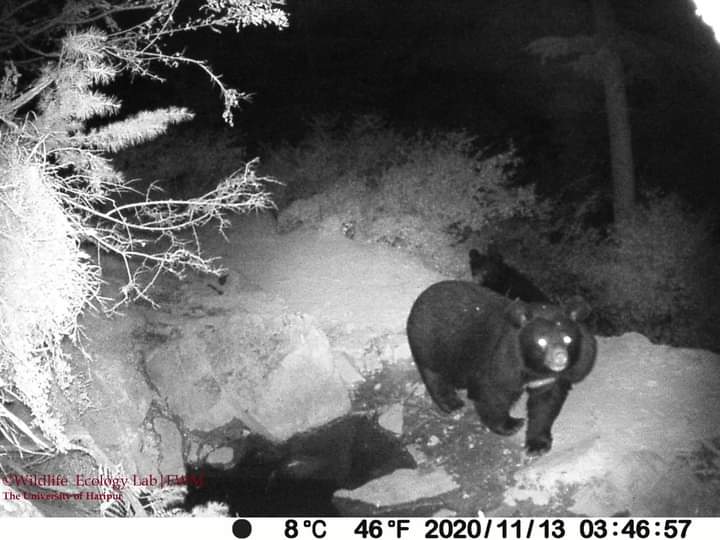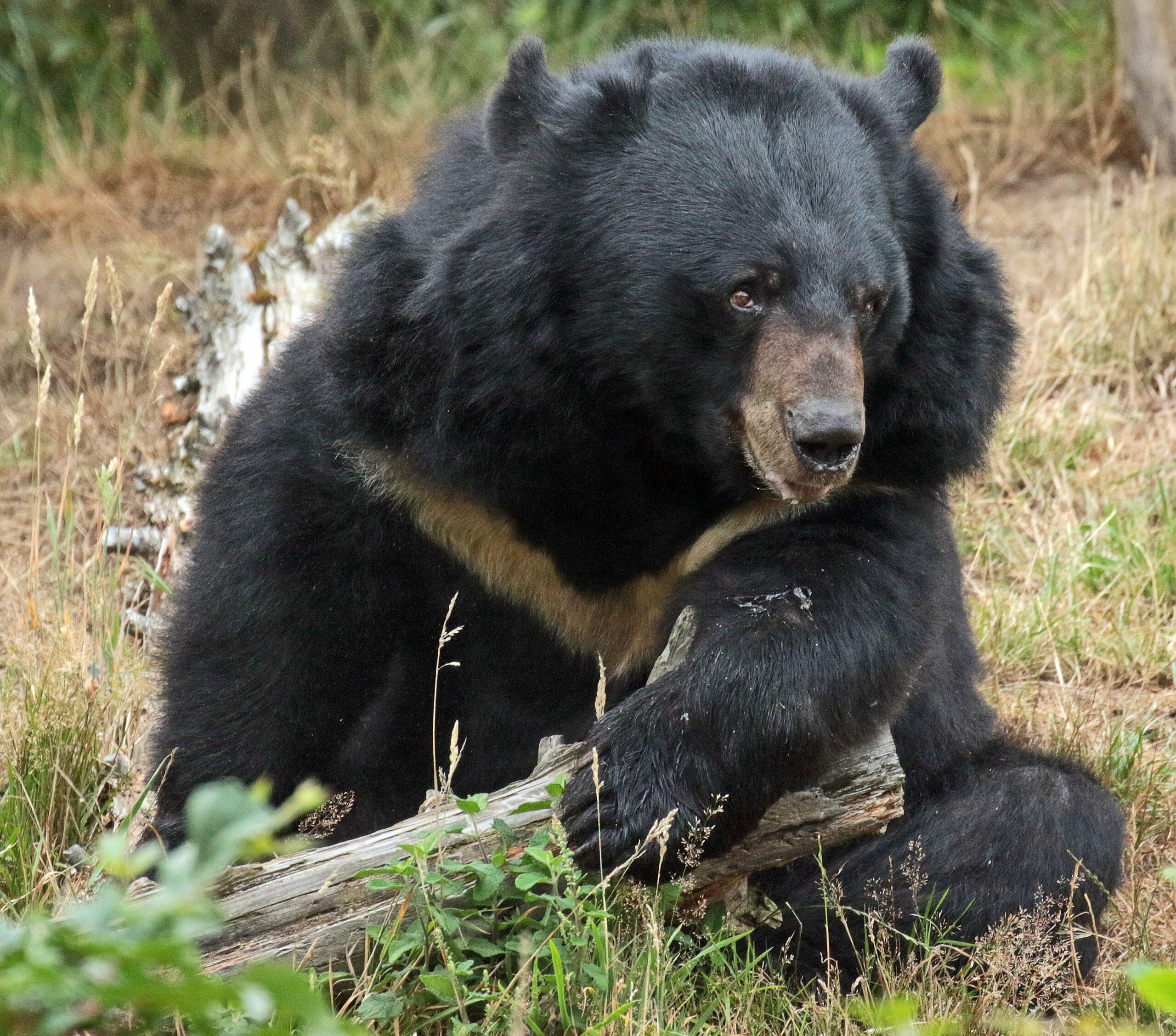The Asiatic black bear (Ursus thibetanus) is one of the iconic species in Pakistan, which occupies mountainous ecosystem of the Hindu Raj Mountain Range (HMR) and extirpated from the most of its historic range in Pakistan. The species population is continuously declining and the known distribution range of these bears is shrinking due to habitat loss and fragmentation. The species has faced local extirpations from several valleys in the region. Bears face threats like habitat loss and fragmentation due to the ever growing human population and infrastructure, poaching for trade in body parts, and competition with growing livestock numbers over limited food and poor range land management practices.
Extreme weather conditions, difficult terrain and political unrest make scientific exploration challenging in the habitat of these bears. This means information on the species existence is still either non-existent or anecdotal for a major part of the species range. Lack of information limits the provincial wildlife departments and conservation organizations for appropriate planning and management of the bear population.

This project by the Wildlife Ecology Lab at the University of Haripur, financially supported by Bears in Mind since 2024, aims to fill information gaps, spatiotemporal distribution pattern, population dynamics, negative interactions over livestock losses and crop damages and identification of key conservation areas. The modern data collection and analytical approaches will be adopted to build a scientific database of bears in HMR. Awareness session with communities and capacity building of wildlife staff will also be facilitated during the project activities.


